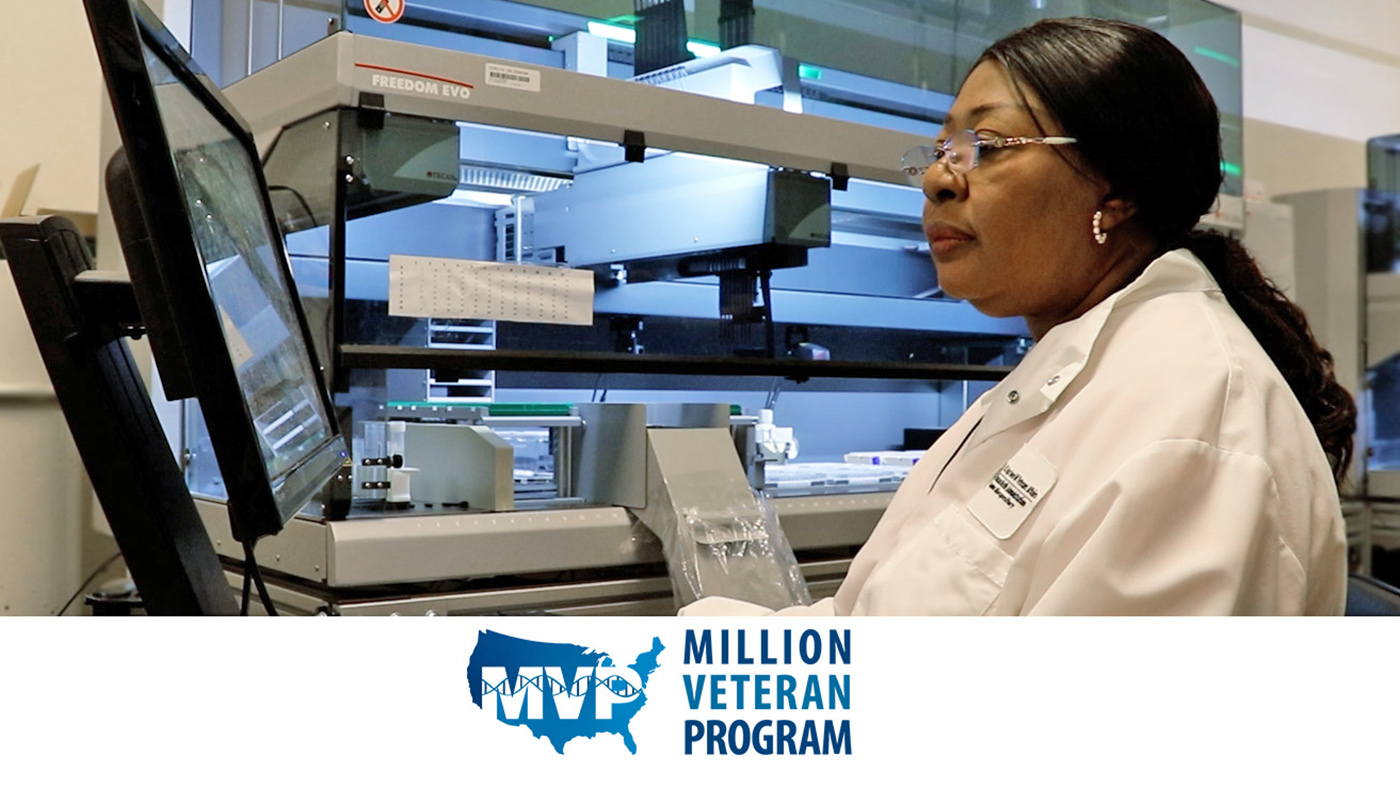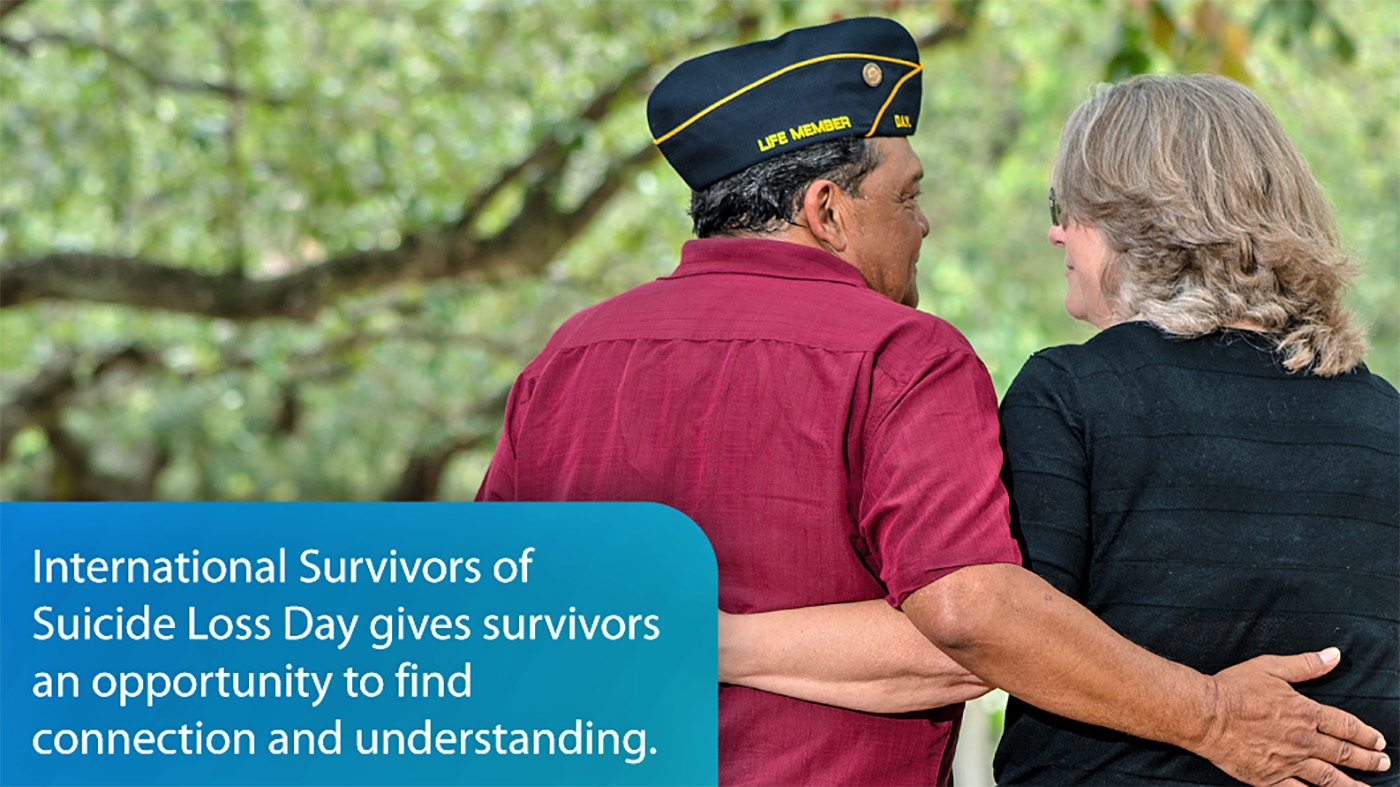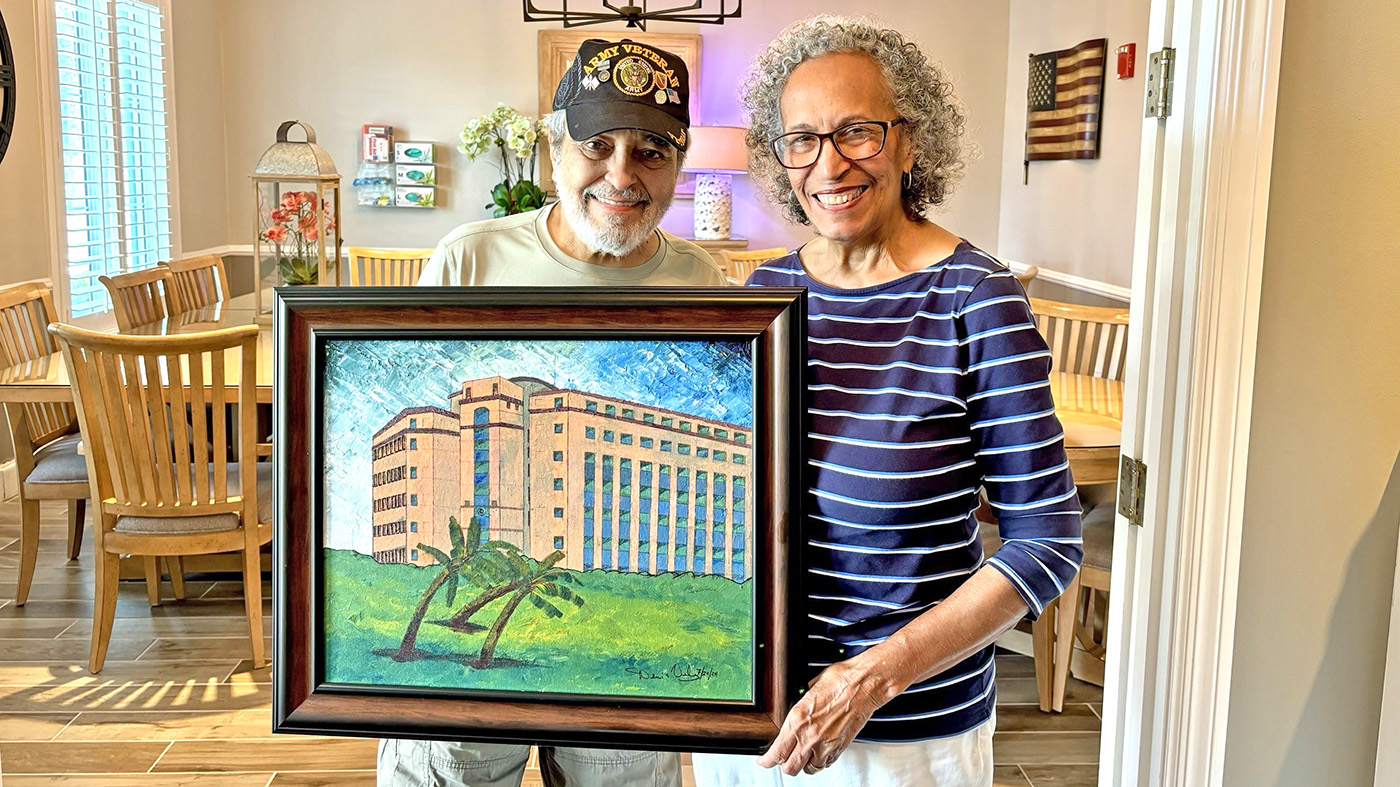A study published today in “Science”—one of the world’s preeminent scientific journals—underscored the significance and impact of VA’s Million Veteran Program (MVP).
Led by VA Drs. Scott Damrauer and Katherine Liao and a team of VA researchers, in partnership with the U.S. Department of Energy (DOE) researchers and the National Institutes of Health (NIH) National Library of Medicine, this latest MVP study included 635,969 Veterans and represented one of the largest studies of its kind to look at genetic associations with health-related traits and disease among a diverse population.
The findings of this new study not only underscore the importance and positive impact of diverse representation in genetic research, but also pave the way for significant advances in health care tailored to meet individual Veteran and Veteran population-specific needs.
Significant new genetic discoveries specific to certain Veteran populations
A primary goal of this study was to assess the relationship between genetic variations (i.e., differences in genes between individuals) and various health traits and diseases (e.g., diabetes, blood cell counts, etc.). By assessing the DNA of Veteran participants and linking findings to VA medical records and additional research questionnaires, the research team identified a total of 26,049 associations between genetic variations and traits across a total of 1,270 health traits. Overall, researchers identified that the genes that cause diseases are more similar than different across Veterans from all backgrounds. Notably, a method called fine-mapping identified causal variants at 6,318 signals across 613 traits. Of these, a third of the associations (n=2,069) identified were unique to populations of non-European ancestry due largely to diseases that are more prevalent or genetic variants that are more common in one group than another.
Some of the key findings include:
- Identification of 101 traits in Veterans with African ancestry that exhibit a prevalence at least twice as high as that observed in Veterans of European ancestry, including hereditary hemolytic anemias, sarcoidosis and keloid scarring.
- Discovery of a new signal in Veterans with African ancestry associated with increased risk of gout.
- Identification of new genes that are associated with alopecia based on increased prevalence of this condition in the Hispanic Veteran population.
Participant diversity in clinical research ensures that research findings apply to all
A persistent limitation of clinical research is a lack of diversity among study participants. The implications are that research findings may not apply to all populations. For instance, certain genetic traits and their associated diseases may be more common in some populations than others. When a study’s participants are alike in their demographics, these important differences go unrecognized. In contrast, when studies include individuals from diverse backgrounds, researchers can pinpoint these unique differences and tailor the study’s implications accordingly.
This is what sets the study that was published today apart from others. Nearly one-third (n=186,927) of Veteran participants were of non-European ancestry. In comparison, across all genome wide association studies published to-date, nearly 94% of participants were of European ancestry. The diversity of this study enabled the identification of nearly 3,500 associations made possible only because non-European populations were included.
Diversity is what makes MVP such a powerful tool, driving its ability to generate research findings that will improve care for all Veterans. Of MVP’s more than a million participants, over a quarter represent a racial or ethnic minority. This makes MVP one of the most diverse genetic databases in the world.
Genetic research helps VA health care providers go beyond “one-size-fits-all” medicine
Associations like those identified in this study may represent genetic predispositions to certain health conditions. They may also provide indication of why one Veteran may respond differently than another to the same treatment for the same condition. Findings can also help identify new uses for FDA-approved drugs for various diseases and health conditions.
Empowered with information like this, VA health care providers can practice what is called precision medicine (sometimes called “personalized medicine”). Precision medicine is when a health care provider tailors disease prevention or medical treatments to an individual Veteran’s clinical, lifestyle and genetic information.
Examples of where VA is leading the way in precision medicine include an initiative on precision mental health and the National Precision Oncology Program, which offers pharmacogenomics and the Clinical Cancer Genetics Service. VA also recently launched the National Pharmacogenomics Program to increase the application of pharmacogenomics more broadly in VA health care.
State-of-the-art analyses made possible through whole-of-government collaboration
A study like this is made possible by collaboration across multiple federal agencies and access to state-of-the-art technology. The data analyses for the study published today were conducted on two of the world’s largest supercomputers—DOE’s Summit and Andes—at the Oak Ridge National Laboratory in Tennessee. The primary analysis took over 14,000 GPU hours (equal to 14 days of wall time) for the supercomputers to complete, investigating relationships between over 2,000 traits and nearly 44 million genetic variants, and resulting in more than 350 billion association analyses.
The outcomes of this study will be universally available for further research through NIH’s National Library of Medicine. This will open the door for other top researchers to rapidly accelerate their own research on health concerns for minority populations.
In the past year alone, findings from more than 100 MVP studies have been published
MVP is leading to significant research findings almost daily. In the past year, the findings from more than 100 studies have been published, highlighting new discoveries on conditions such as tinnitus, Alzheimer’s disease, prostate cancer, PTSD, endometriosis and more. These critical research findings continue to advance VA’s understanding of and ability to address Veterans’ most pressing health concerns and needs.
Learn how to participate in MVP and drive forward the future of Veteran health care
Scientific advances like those highlighted in this study would not be possible without the data and samples supplied by Veterans to VA’s MVP. Learn more about how to join MVP by visiting mvp.va.gov or calling 866-441-6075. Learn more about all the ways VA protects MVP participants’ privacy here.
Topics in this story
More Stories
For the Great American Smokeout, explore VA resources and learn why every attempt to stop smoking is a step toward success.
If you’ve lost a loved one to suicide, resources and support are available to help you cope during your grieving and healing.
Army Veteran Denis Velez donated a painting of his VA hospital as a way of giving back for his treatment there.







Genetic research in regards to biological ailments, diseases, conditions, etc. where there exists a definite “biomarker” that can be obtained, measured, or compared is reasonable, and most people probably figure that is really all that is studied.
Unfortunately the field of genetic medical research is also populated by “scientists” that desire to create a pseudo-connection with genetics and behavioral issues (or “personality disorders”, etc.).
Ostensibly, the “All of Us” genetic medical research program included “depression” in its scope, but with the provision that what was actually being determined was how responsive depressed people were to various treatments in relation to their genetics.
The problem lies in the fact that there exists no biomarker to evaluate or diagnose “depression” or, by extension, compare the effectiveness of various treatments for people.
This would all seem like a mere exercise in futility and nothing would or could really come of it but there still is the “treatment” for depression of “ECT” (electroconvulsive treatments) that is cheap to administer, promoted, and advertised by the medical community. (In Ireland it has been designated as “compulsory” for a person if a doctor (psychiatrist) orders the treatments.)
There exists “confirmation bias” with the promoted effectiveness of shock treatments for depression. Due to the nature of the condition there isn’t much data existing as to long-term effects of ECT. There are numerous survivors of ECT though, and the majority of them that speak out relay that they’ve suffered irreversible brain damage. One of them is Matthew Weatherford, who had a biography published, “Learning Empathy: The Memoirs of An Autistic Savant”. The book is free on Amazon so there is really no excuse whatsoever why anyone in the relatable field(s) couldn’t read it.